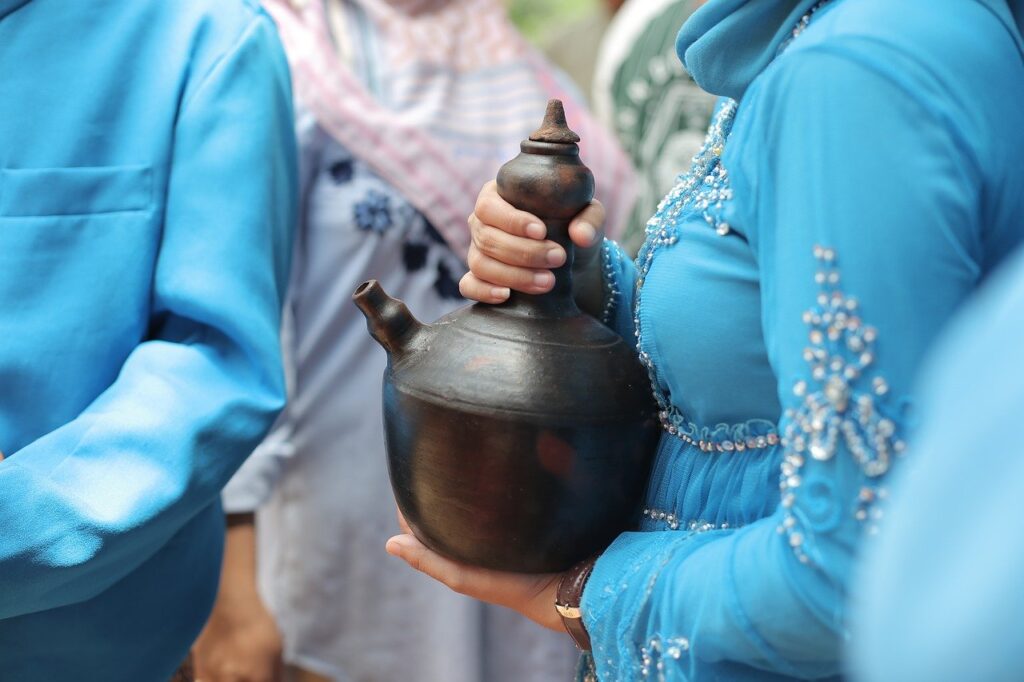In every religion, its followers observe specific rituals to show their dedication to their faith. Muslims, for example, practice Salat, the second pillar of Islam. It is the prayer performed five times a day at specific times based on the sun’s path. The timings are at dawn before sunrise, midday after the sun has passed its peak, during the late part of the afternoon, after sunset, and between sunset and midnight.
To ensure the Muslim community is reminded of the prayer schedule, Adhan or the Islamic call to prayer is heard from the mosque. In some cases when Muslims do not live close to the mosque, they can block off certain times of the day to pray. For individuals who want to accurately follow the prayer schedule, they can rely on certain apps like Muslim Pro to help remind them when it’s time to pray.
When it comes to weddings, Muslims only require one practice called nikah. It is short and meaningful and can be officiated by any Muslim who understands Islamic tradition. In nikah, the bride and groom provide consent verbally and in writing. It starts with the groom proposing to the bride in front of at least two witnesses, called ijab. During this time, mehr or the ceremonial presentation of gifts to the bride, also occurs. This is then followed by the acceptance and agreement of the proposal, or qabul, along with signing the marriage contract.
Depending on the individual officiating the nikah, they can add a religious ceremony that involves reciting the first chapter of the Quran called Fatihah. If this is the first time you will attend or witness a Muslim wedding and want to be involved in every aspect of the ceremony, it can be helpful to download the Muslim Pro app and read the translations before the wedding date. As a non-Muslim guest, it’s also best to prepare for the occasion to avoid any slip-ups or unwanted behavior. Here are some tips to help you stay respectful of the Muslim customs and make your experience memorable.
Dress Appropriately and Respectfully
One Muslim practice you need to observe as a guest involves the proper attire. Men and women must wear modest clothing, covering their arms and legs. With this in mind, long pants or long dresses and skirts are appropriate. Women must also wear tops with modest necklines and prepare a scarf or a head covering, especially if the ceremony will be held in a mosque. While the same standards for modest clothing apply during the reception, it is likely that women won’t need to keep their heads covered.
Wear Shoes You Can Easily Remove
Many Muslim wedding ceremonies are held in a mosque. It is a sacred place of worship where Muslims pray barefoot on the carpet. To avoid tracking dirt into the mosque and show respect for the religious practice, remove your shoes before entering. Often, you will find a shoe rack where you can place your footwear. You should also wear shoes you can easily remove and put back on so you quickly enter and exit the venue.
Avoid Mingling with the Opposite Gender Unless They Initiate the Interaction
You can expect the Muslim marriage ceremony to have gender separation whether it is held inside a mosque or in a private venue. At wedding receptions, the degree of separation between two genders can vary. For instance, in some cases, there will be separate rooms for men and women to celebrate the festivities. In others, a partition is placed in the reception venue to create a division between the two genders. At times, men and women will be grouped at different tables. If you don’t observe the Muslim faith, the hosts may assign you to a table with other non-Muslims regardless of gender.
To be respectful of the practice, you need to refrain from mingling with individuals of the opposite sex. Unless they prompt the interaction, don’t dance, shake hands, or initiate any form of physical contact with them.
Enjoy the Ceremony and Diverse Culture
Islam is one of the most popular religions in the world, accounting for 25 percent of the global population observing the faith. When you attend a Muslim wedding, it can simply mean the couple is members of the faith but it doesn’t necessarily dictate their culture. It’s possible that the couple has roots from Southeast Asia or Nigeria and will include other customs representing their culture. As such, it can be a great time to immerse yourself in the culture and enjoy their special way of celebrating the occasion.
Individuals observing a religion different from your own have various ways of celebrating their faith, whether it’s in their daily lives or during a special occasion like a wedding ceremony. If it’s your first time attending a Muslim marriage ceremony, you want to stay respectful of their religious practices by familiarizing yourself with the traditions and social expectations for you as a guest. In case you are not certain of something and want to avoid any faux pas, it’s best to ask the couple.



